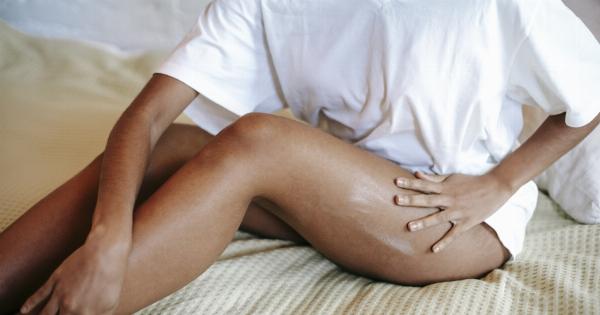Body image refers to the way a person feels about their physical appearance. For women, body image is heavily influenced by societal norms and media representations of the ideal female body shape.
Women who perceive themselves as overweight or unattractive may experience negative effects on their mental and physical health. This article provides a comprehensive overview of the effects of body image on women’s health.
Body Image and Mental Health
Poor body image can lead to mental health problems such as anxiety, depression, and eating disorders. Women who perceive themselves as overweight or unattractive may experience feelings of shame, low self-esteem, and poor body image.
This negative self-image can affect their daily life and relationships with others. They may avoid social outings, dating, or other activities, which can lead to feelings of isolation and loneliness.
Eating Disorders
Eating disorders are severe mental illnesses characterized by an abnormal relationship with food and body weight. They include anorexia nervosa, bulimia nervosa, and binge-eating disorder.
According to the National Eating Disorders Association, about 20 million women in the United States alone have an eating disorder at some point in their lives.
Eating disorders are often caused by the pressure to conform to societal norms of body shape and weight. For some women, restrictive diets or compulsive exercise may be a way to cope with their negative body image.
Others may use binge-eating as a way to find temporary relief from anxiety or depression. However, eating disorders can lead to severe physical health problems, including malnutrition, digestive problems, and organ failure.
Body Image and Physical Health
Body image can also affect a woman’s physical health. Women who perceive themselves as overweight may be more likely to engage in unhealthy behaviors, such as crash dieting or over-exercising.
These behaviors can lead to malnutrition, dehydration, and injuries. Additionally, women who are dissatisfied with their body may be less likely to engage in health-promoting behaviors, such as regular exercise or healthy eating.
Poor body image can also affect a woman’s sexual health. Women who feel ashamed or insecure about their bodies may avoid sexual activity, which can lead to relationship problems, low libido, and sexual dysfunction.
Body Image and Aging
As women age, their body changes. These changes can be challenging for some women who associate youth with beauty and attractiveness. The pressure to look young and fit can lead to feelings of inadequacy and poor body image.
Additionally, societal norms may dismiss older women’s beauty and sexuality, making it harder for them to accept their physical changes.
Improving Body Image
Improving body image involves changing the way we think about our bodies and ourselves. Some tips for improving body image include:.
- Acknowledge the positive things about your body
- Surround yourself with positive influences
- Avoid comparing yourself to others
- Focus on health, not weight
- Avoid restrictive diets or compulsive exercise
- Seek help if you feel overwhelmed
Conclusion
Body image affects women’s mental and physical health. Negative body image can lead to mental health problems such as anxiety, depression, and eating disorders.
It can also affect physical health by leading to unhealthy behaviors such as crash dieting or over-exercising. Improving body image requires changing the way we think about our bodies and ourselves. By focusing on positive traits and surrounding ourselves with positive influences, we can help women improve their body image and lead healthier lives.






























